266 papers:
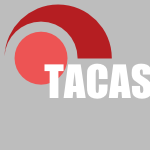 TACAS-2015-RenaultDKP #automaton #model checking #parallel
TACAS-2015-RenaultDKP #automaton #model checking #parallel- Parallel Explicit Model Checking for Generalized Büchi Automata (ER, ADL, FK, DP), pp. 613–627.
 DHM-HM-2015-KikuchiSTGH #information management
DHM-HM-2015-KikuchiSTGH #information management- An Investigation on Conversion from Tacit Knowledge to Explicit Knowledge in Hand Lay-Up Fabrication Method (TK, ES, YT, AG, HH), pp. 114–123.
 ICML-2015-Yang0JZ #bound #fault #set
ICML-2015-Yang0JZ #bound #fault #set- An Explicit Sampling Dependent Spectral Error Bound for Column Subset Selection (TY, LZ, RJ, SZ), pp. 135–143.
 OOPSLA-2015-BastaniAA #android #data flow #verification
OOPSLA-2015-BastaniAA #android #data flow #verification- Interactively verifying absence of explicit information flows in Android apps (OB, SA, AA), pp. 299–315.
 SAC-2015-PapouliasDDF #towards
SAC-2015-PapouliasDDF #towards- Reifying the reflectogram: towards explicit control for implicit reflection (NP, MD, SD, LF), pp. 1978–1985.
 ICSE-v2-2015-Jayaram #framework #programming #towards
ICSE-v2-2015-Jayaram #framework #programming #towards- Towards Explicitly Elastic Programming Frameworks (KRJ), pp. 619–622.
 SPLC-2015-ColaLTQ #product line
SPLC-2015-ColaLTQ #product line- An MDE tool for defining software product families with explicit variation points (SDC, KKL, CMT, CQ), pp. 355–360.
 CC-2015-BourkeCPPP #code generation #hybrid
CC-2015-BourkeCPPP #code generation #hybrid- A Synchronous-Based Code Generator for Explicit Hybrid Systems Languages (TB, JLC, BP, CP, MP), pp. 69–88.
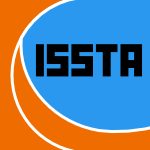 ISSTA-2015-ClappAA #data flow #mining #named #specification
ISSTA-2015-ClappAA #data flow #mining #named #specification- Modelgen: mining explicit information flow specifications from concrete executions (LC, SA, AA), pp. 129–140.
 ITiCSE-2014-Isomottonen #process #student
ITiCSE-2014-Isomottonen #process #student- Making group processes explicit to student: a case of justice (VI), pp. 195–200.
 TACAS-2014-LoweMW #analysis #contest
TACAS-2014-LoweMW #analysis #contest- CPAchecker with Sequential Combination of Explicit-Value Analyses and Predicate Analyses — (Competition Contribution) (SL, MUM, PW), pp. 392–394.
 DHM-2014-KikuchiTTGH #information management
DHM-2014-KikuchiTTGH #information management- Biomechanics Investigation of Skillful Technician in Spray-up Fabrication Method — Converting Tacit Knowledge to Explicit Knowledge in the Fiber Reinforced Plastics Molding (TK, YT, YT, AG, HH), pp. 24–34.
 ICPR-2014-MekonnenLHB #detection #optimisation #people
ICPR-2014-MekonnenLHB #detection #optimisation #people- People Detection with Heterogeneous Features and Explicit Optimization on Computation Time (AAM, FL, AH, CB), pp. 4322–4327.
 ICPR-2014-Sahbi #image #kernel
ICPR-2014-Sahbi #image #kernel- Network-Dependent Image Annotation Based on Explicit Context-Dependent Kernel Maps (HS), pp. 625–630.
 RecSys-2014-FazeliLBDS #matrix #social #trust
RecSys-2014-FazeliLBDS #matrix #social #trust- Implicit vs. explicit trust in social matrix factorization (SF, BL, AB, HD, PBS), pp. 317–320.
 SIGIR-2014-ZhangL0ZLM #analysis #modelling #recommendation #sentiment
SIGIR-2014-ZhangL0ZLM #analysis #modelling #recommendation #sentiment- Explicit factor models for explainable recommendation based on phrase-level sentiment analysis (YZ, GL, MZ, YZ, YL, SM), pp. 83–92.
 MoDELS-2014-BakiSCMF #learning #model transformation
MoDELS-2014-BakiSCMF #learning #model transformation- Learning Implicit and Explicit Control in Model Transformations by Example (IB, HAS, QC, PM, MF), pp. 636–652.
 MoDELS-2014-BakiSCMF #learning #model transformation
MoDELS-2014-BakiSCMF #learning #model transformation- Learning Implicit and Explicit Control in Model Transformations by Example (IB, HAS, QC, PM, MF), pp. 636–652.
 PLATEAU-2014-CoblenzAMS
PLATEAU-2014-CoblenzAMS- Considering Productivity Effects of Explicit Type Declarations (MJC, JA, BAM, JS), pp. 59–61.
 TAP-2014-KanigCCGMR #verification
TAP-2014-KanigCCGMR #verification- Explicit Assumptions — A Prenup for Marrying Static and Dynamic Program Verification (JK, RC, CC, JG, YM, ER), pp. 142–157.
 DAC-2013-ColmenaresEHBMCGRBMAK #adaptation #named #refactoring
DAC-2013-ColmenaresEHBMCGRBMAK #adaptation #named #refactoring- Tessellation: refactoring the OS around explicit resource containers with continuous adaptation (JAC, GE, SAH, SB, MM, DC, BG, ER, DBB, NM, KA, JK), p. 10.
 DATE-2013-FourmigueBN #3d #simulation
DATE-2013-FourmigueBN #3d #simulation- Explicit transient thermal simulation of liquid-cooled 3D ICs (AF, GB, GN), pp. 1385–1390.
 DATE-2013-GaoGB #fault tolerance #scheduling #using
DATE-2013-GaoGB #fault tolerance #scheduling #using- Using explicit output comparisons for fault tolerant scheduling (FTS) on modern high-performance processors (YG, SKG, MAB), pp. 927–932.
 FASE-2013-BeyerL #model checking
FASE-2013-BeyerL #model checking- Explicit-State Software Model Checking Based on CEGAR and Interpolation (DB, SL), pp. 146–162.
 TACAS-2013-Lowe #analysis #contest
TACAS-2013-Lowe #analysis #contest- CPAchecker with Explicit-Value Analysis Based on CEGAR and Interpolation — (Competition Contribution) (SL), pp. 610–612.
 TACAS-2013-Wendler #analysis #contest
TACAS-2013-Wendler #analysis #contest- CPAchecker with Sequential Combination of Explicit-State Analysis and Predicate Analysis — (Competition Contribution) (PW), pp. 613–615.
 STOC-2013-BurgisserI #bound #complexity #geometry
STOC-2013-BurgisserI #bound #complexity #geometry- Explicit lower bounds via geometric complexity theory (PB, CI), pp. 141–150.
 DLT-2013-Pin #regular expression
DLT-2013-Pin #regular expression- An Explicit Formula for the Intersection of Two Polynomials of Regular Languages (JÉP), pp. 31–45.
 ICFP-2013-WeirichHE #similarity
ICFP-2013-WeirichHE #similarity- System FC with explicit kind equality (SW, JH, RAE), pp. 275–286.
 DHM-SET-2013-MazzolaMBPAPP #process
DHM-SET-2013-MazzolaMBPAPP #process- Explicit Tracking in the Diagnostic Process for Hand Dermatological Practices (LM, SM, SB, FP, FA, ODP, PP), pp. 248–257.
 HILT-2013-CourtieuACZRBHG #coq #formal method #runtime #semantics #towards #using
HILT-2013-CourtieuACZRBHG #coq #formal method #runtime #semantics #towards #using- Towards the formalization of SPARK 2014 semantics with explicit run-time checks using coq (PC, MVA, TC, ZZ, R, JB, JH, JG, TJ), pp. 21–22.
 KDD-2013-PhamP #kernel #performance #polynomial #scalability
KDD-2013-PhamP #kernel #performance #polynomial #scalability- Fast and scalable polynomial kernels via explicit feature maps (NP, RP), pp. 239–247.
 SIGIR-2013-LagunSWBB #feedback
SIGIR-2013-LagunSWBB #feedback- Explicit feedback in local search tasks (DL, AS, RWW, PB, GB), pp. 1065–1068.
 SIGIR-2013-SonKP #analysis #locality #recommendation #semantics
SIGIR-2013-SonKP #analysis #locality #recommendation #semantics- A location-based news article recommendation with explicit localized semantic analysis (JWS, AYK, SBP), pp. 293–302.
 CAV-2013-BarnatBHHKLRSW #c #c++ #model checking #parallel #source code #thread
CAV-2013-BarnatBHHKLRSW #c #c++ #model checking #parallel #source code #thread- DiVinE 3.0 — An Explicit-State Model Checker for Multithreaded C & C++ Programs (JB, LB, VH, JH, JK, ML, PR, VS, JW), pp. 863–868.
 CAV-2013-BinghamBEG #concurrent #distributed #model checking
CAV-2013-BinghamBEG #concurrent #distributed #model checking- Distributed Explicit State Model Checking of Deadlock Freedom (BDB, JDB, JE, MRG), pp. 235–241.
 LICS-2013-GundersenHP #λ-calculus
LICS-2013-GundersenHP #λ-calculus- Atomic λ Calculus: A Typed λ-Calculus with Explicit Sharing (TG, WH, MP), pp. 311–320.
 DAC-2012-KahngLN #estimation #modelling
DAC-2012-KahngLN #estimation #modelling- Explicit modeling of control and data for improved NoC router estimation (ABK, BL, SN), pp. 392–397.
 DATE-2012-SheHMC #architecture #energy #scheduling
DATE-2012-SheHMC #architecture #energy #scheduling- Scheduling for register file energy minimization in explicit datapath architectures (DS, YH, BM, HC), pp. 388–393.
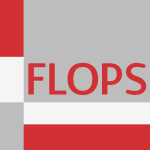 FLOPS-2012-Uustalu #performance
FLOPS-2012-Uustalu #performance- Explicit Binds: Effortless Efficiency with and without Trees (TU), pp. 317–331.
 FM-2012-ChristakisMW #collaboration #testing #verification
FM-2012-ChristakisMW #collaboration #testing #verification- Collaborative Verification and Testing with Explicit Assumptions (MC, PM, VW), pp. 132–146.
 ICFP-2012-Mainland #haskell #metaprogramming
ICFP-2012-Mainland #haskell #metaprogramming- Explicitly heterogeneous metaprogramming with MetaHaskell (GM), pp. 311–322.
 CHI-2012-HoarauC #interactive #visual notation
CHI-2012-HoarauC #interactive #visual notation- Augmenting the scope of interactions with implicit and explicit graphical structures (RH, SC), pp. 1937–1946.
 ICEIS-J-2012-PereiraBB12a #aspect-oriented #design #process
ICEIS-J-2012-PereiraBB12a #aspect-oriented #design #process- Values and Cultural Aspects in Design: Artifacts for Making Them Explicit in Design Activities (RP, SBB, MCCB), pp. 358–375.
 CIKM-2012-LiuW #analysis #on the #semantics
CIKM-2012-LiuW #analysis #on the #semantics- On the connections between explicit semantic analysis and latent semantic analysis (CL, YMW), pp. 1804–1808.
 CIKM-2012-YuR #identification #query
CIKM-2012-YuR #identification #query- Role-explicit query identification and intent role annotation (HY, FR), pp. 1163–1172.
 ICPR-2012-KongW #clustering #learning #multi
ICPR-2012-KongW #clustering #learning #multi- A multi-task learning strategy for unsupervised clustering via explicitly separating the commonality (SK, DW), pp. 771–774.
 ICPR-2012-LeiWPMY #robust
ICPR-2012-LeiWPMY #robust- Robust tracking by accounting for hard negatives explicitly (PL, TW, MP, AM, ZY), pp. 2112–2115.
 ICPR-2012-ZarrouatiAR #robust
ICPR-2012-ZarrouatiAR #robust- Robust depth regularization explicitly constrained by camera motion (NZ, EA, PR), pp. 3606–3609.
 RecSys-2012-MolingBR #feedback #recommendation
RecSys-2012-MolingBR #feedback #recommendation- Optimal radio channel recommendations with explicit and implicit feedback (OM, LB, FR), pp. 75–82.
 SIGIR-2012-HechtCQSRGD #semantics
SIGIR-2012-HechtCQSRGD #semantics- Explanatory semantic relatedness and explicit spatialization for exploratory search (BH, SC, MQ, JS, MR, DG, DD), pp. 415–424.
 SIGIR-2012-HeHV #topic
SIGIR-2012-HeHV #topic- Combining implicit and explicit topic representations for result diversification (JH, VH, APdV), pp. 851–860.
 SIGIR-2012-VargasCV #information retrieval #modelling
SIGIR-2012-VargasCV #information retrieval #modelling- Explicit relevance models in intent-oriented information retrieval diversification (SV, PC, DV), pp. 75–84.
 TOOLS-EUROPE-2012-JezekBH #independence
TOOLS-EUROPE-2012-JezekBH #independence- Enhancing OSGi with Explicit, Vendor Independent Extra-Functional Properties (KJ, PB, LH), pp. 108–123.
 SAC-2012-NetoA #analysis #process
SAC-2012-NetoA #analysis #process- Keeping decisions and rationale explicit in business process analysis (MSdSN, RMdA), pp. 1702–1708.
 SAC-2012-WinterB
SAC-2012-WinterB- Explicitly accommodating origin preference for inter-domain traffic engineering (RW, IvB), pp. 583–587.
 CGO-2012-JangLSL #automation #memory management #multi
CGO-2012-JangLSL #automation #memory management #multi- An automatic code overlaying technique for multicores with explicitly-managed memory hierarchies (CJ, JL, SS, JL), pp. 219–229.
 RTA-2012-Accattoli #theorem
RTA-2012-Accattoli #theorem- An Abstract Factorization Theorem for Explicit Substitutions (BA), pp. 6–21.
 DATE-2011-TendulkarPNKNK #communication #hardware #runtime
DATE-2011-TendulkarPNKNK #communication #hardware #runtime- Fine-grain OpenMP runtime support with explicit communication hardware primitives (PT, VP, GN, SGK, DSN, MK), pp. 891–894.
 ICDAR-2011-LuqmanRLB #documentation #graph #image
ICDAR-2011-LuqmanRLB #documentation #graph #image- Subgraph Spotting through Explicit Graph Embedding: An Application to Content Spotting in Graphic Document Images (MML, JYR, JL, TB), pp. 870–874.
 ITiCSE-2011-BowerM #comparison #learning
ITiCSE-2011-BowerM #comparison #learning- Continual and explicit comparison to promote proactive facilitation during second computer language learning (MB, AM), pp. 218–222.
 STOC-2011-BourgainDFKK #matrix
STOC-2011-BourgainDFKK #matrix- Breaking the k2 barrier for explicit RIP matrices (JB, SJD, KF, SK, DK), pp. 637–644.
 STOC-2011-FawziHS #nondeterminism #performance
STOC-2011-FawziHS #nondeterminism #performance- From low-distortion norm embeddings to explicit uncertainty relations and efficient information locking (OF, PH, PS), pp. 773–782.
 ICALP-v2-2011-ZhangB #model checking #probability
ICALP-v2-2011-ZhangB #model checking #probability- A Progress Measure for Explicit-State Probabilistic Model-Checkers (XZ, FvB), pp. 283–294.
 CHI-2011-GuiardOP #fault #trade-off
CHI-2011-GuiardOP #fault #trade-off- Fitt’s law as an explicit time/error trade-off (YG, HBO, STP), pp. 1619–1628.
 HIMI-v1-2011-FriedemannRTSS #modelling #visualisation
HIMI-v1-2011-FriedemannRTSS #modelling #visualisation- Explicit Modeling and Visualization of Imperfect Information in the Context of Decision Support for Tsunami Early Warning in Indonesia (MF, UR, ST, TS, CS), pp. 201–210.
 CIKM-2011-GottronAS #analysis #semantics
CIKM-2011-GottronAS #analysis #semantics- Insights into explicit semantic analysis (TG, MA, BS), pp. 1961–1964.
 CIKM-2011-LoSZL #community #mining #network #trust
CIKM-2011-LoSZL #community #mining #network #trust- Mining direct antagonistic communities in explicit trust networks (DL, DS, KZ, EPL), pp. 1013–1018.
 ICML-2011-RifaiVMGB #feature model
ICML-2011-RifaiVMGB #feature model- Contractive Auto-Encoders: Explicit Invariance During Feature Extraction (SR, PV, XM, XG, YB), pp. 833–840.
 PADL-2011-DevrieseP #combinator #domain-specific language #recursion #semiparsing
PADL-2011-DevrieseP #combinator #domain-specific language #recursion #semiparsing- Explicitly Recursive Grammar Combinators — A Better Model for Shallow Parser DSLs (DD, FP), pp. 84–98.
 PADL-2011-HolkBWHCL #communication #declarative #named
PADL-2011-HolkBWHCL #communication #declarative #named- Kanor — A Declarative Language for Explicit Communication (EH, WEB, JW, TH, AC, AL), pp. 190–204.
 PPoPP-2011-FengGH #commit #named #parallel #scalability
PPoPP-2011-FengGH #commit #named #parallel #scalability- SpiceC: scalable parallelism via implicit copying and explicit commit (MF, RG, YH), pp. 69–80.
 ESOP-2010-WickersonDP #composition #reasoning
ESOP-2010-WickersonDP #composition #reasoning- Explicit Stabilisation for Modular Rely-Guarantee Reasoning (JW, MD, MJP), pp. 610–629.
 FASE-2010-BeyerHTZ #analysis #refinement
FASE-2010-BeyerHTZ #analysis #refinement- Shape Refinement through Explicit Heap Analysis (DB, TAH, GT, DZ), pp. 263–277.
 CSMR-2010-LiuM #analysis #case study #data flow
CSMR-2010-LiuM #analysis #case study #data flow- Static Information Flow Analysis with Handling of Implicit Flows and a Study on Effects of Implicit Flows vs Explicit Flows (YL, AM), pp. 146–155.
 PASTE-2010-HaC #communication #concurrent #dynamic analysis
PASTE-2010-HaC #communication #concurrent #dynamic analysis- Opportunities for concurrent dynamic analysis with explicit inter-core communication (JH, SPC), pp. 17–20.
 STOC-2010-Talagrand #question #set
STOC-2010-Talagrand #question #set- Are many small sets explicitly small? (MT), pp. 13–36.
 IFM-2010-DiosMP #pointer
IFM-2010-DiosMP #pointer- Certified Absence of Dangling Pointers in a Language with Explicit Deallocation (JdD, MM, RP), pp. 305–319.
 CHI-2010-KuikkaniemiLTSKR #game studies
CHI-2010-KuikkaniemiLTSKR #game studies- The influence of implicit and explicit biofeedback in first-person shooter games (KK, TL, MT, TS, IK, NR), pp. 859–868.
 CIKM-2010-LiuXZY #collaboration #feedback
CIKM-2010-LiuXZY #collaboration #feedback- Unifying explicit and implicit feedback for collaborative filtering (NNL, EWX, MZ, QY), pp. 1445–1448.
 ECIR-2010-BroschartBS #quality #retrieval
ECIR-2010-BroschartBS #quality #retrieval- Evaluating the Potential of Explicit Phrases for Retrieval Quality (AB, KB, RS), pp. 623–626.
 ECIR-2010-SantosPMO
ECIR-2010-SantosPMO- Explicit Search Result Diversification through Sub-queries (RLTS, JP, CM, IO), pp. 87–99.
 ICPR-2010-GaschlerBH #3d #re-engineering
ICPR-2010-GaschlerBH #3d #re-engineering- Epipolar-Based Stereo Tracking Without Explicit 3D Reconstruction (AG, DB, GDH), pp. 1755–1758.
 RecSys-2010-JawaheerSK #feedback #music #online #recommendation
RecSys-2010-JawaheerSK #feedback #music #online #recommendation- Characterisation of explicit feedback in an online music recommendation service (GJ, MS, PK), pp. 317–320.
 RecSys-2010-PilaszyZT #dataset #feedback #matrix #performance
RecSys-2010-PilaszyZT #dataset #feedback #matrix #performance- Fast als-based matrix factorization for explicit and implicit feedback datasets (IP, DZ, DT), pp. 71–78.
 PADL-2010-Iborra #exception #haskell
PADL-2010-Iborra #exception #haskell- Explicitly Typed Exceptions for Haskell (JI), pp. 43–57.
 HPDC-2010-RajannaSJLG #clustering #coordination #in the cloud #named #network
HPDC-2010-RajannaSJLG #clustering #coordination #in the cloud #named #network- XCo: explicit coordination to prevent network fabric congestion in cloud computing cluster platforms (VSR, SS, AJ, CL, KG), pp. 252–263.
 IJCAR-2010-Schack-NielsenS #linear #λ-calculus
IJCAR-2010-Schack-NielsenS #linear #λ-calculus- Curry-Style Explicit Substitutions for the Linear and Affine Lambda Calculus (ASN, CS), pp. 1–14.
 ASE-2009-NistorH #development
ASE-2009-NistorH #development- Explicit Concern-Driven Development with ArchEvol (ECN, AvdH), pp. 185–196.
 DAC-2009-DongL #integration #performance #simulation
DAC-2009-DongL #integration #performance #simulation- Parallelizable stable explicit numerical integration for efficient circuit simulation (WD, PL), pp. 382–385.
 DATE-2009-CabodiCGMNQ #constraints #model checking #verification
DATE-2009-CabodiCGMNQ #constraints #model checking #verification- Speeding up model checking by exploiting explicit and hidden verification constraints (GC, PC, LG, MM, SN, SQ), pp. 1686–1691.
 DATE-2009-MarongiuB #memory management #performance
DATE-2009-MarongiuB #memory management #performance- Efficient OpenMP support and extensions for MPSoCs with explicitly managed memory hierarchy (AM, LB), pp. 809–814.
 ICDAR-2009-DelayeAM #fuzzy #modelling #recognition
ICDAR-2009-DelayeAM #fuzzy #modelling #recognition- Explicit Fuzzy Modeling of Shapes and Positioning for Handwritten Chinese Character Recognition (AD, ÉA, SM), pp. 1121–1125.
 PLDI-2009-LivshitsNRB #data flow #named #problem #specification
PLDI-2009-LivshitsNRB #data flow #named #problem #specification- Merlin: specification inference for explicit information flow problems (VBL, AVN, SKR, AB), pp. 75–86.
 STOC-2009-RabaniS #linear
STOC-2009-RabaniS #linear- Explicit construction of a small epsilon-net for linear threshold functions (YR, AS), pp. 649–658.
 ICALP-v2-2009-MelliesTT #exponential #linear #logic
ICALP-v2-2009-MelliesTT #exponential #linear #logic- An Explicit Formula for the Free Exponential Modality of Linear Logic (PAM, NT, CT), pp. 247–260.
 CHI-2009-KostakosO #assessment #design #trust
CHI-2009-KostakosO #assessment #design #trust- Designing trustworthy situated services: an implicit and explicit assessment of locative images-effect on trust (VK, IO), pp. 329–332.
 SLE-2009-LaarmanK #metamodelling #ontology
SLE-2009-LaarmanK #metamodelling #ontology- Ontological Metamodeling with Explicit Instantiation (AL, IK), pp. 174–183.
 PPoPP-2009-SchneiderYRLSN #comparison #memory management #modelling #multi #programming
PPoPP-2009-SchneiderYRLSN #comparison #memory management #modelling #multi #programming- A comparison of programming models for multiprocessors with explicitly managed memory hierarchies (SS, JSY, BR, JCL, AS, DSN), pp. 131–140.
 RTA-2009-Falco #framework #interactive
RTA-2009-Falco #framework #interactive- An Explicit Framework for Interaction Nets (MdF), pp. 209–223.
 ECSA-2008-FankamJBA #approach #architecture #database #ontology #semantics
ECSA-2008-FankamJBA #approach #architecture #database #ontology #semantics- Extending the ANSI/SPARC Architecture Database with Explicit Data Semantics: An Ontology-Based Approach (CF, SJ, LB, YAA), pp. 318–321.
 PASTE-2008-LiuM #data flow #static analysis
PASTE-2008-LiuM #data flow #static analysis- Static analysis for inference of explicit information flow (YL, AM), pp. 50–56.
 ICALP-A-2008-PoratR #adaptation #combinator #testing
ICALP-A-2008-PoratR #adaptation #combinator #testing- Explicit Non-adaptive Combinatorial Group Testing Schemes (EP, AR), pp. 748–759.
 SIGIR-2008-KeskustaloJPK #higher-order #performance #visualisation
SIGIR-2008-KeskustaloJPK #higher-order #performance #visualisation- Intuition-supporting visualization of user’s performance based on explicit negative higher-order relevance (HK, KJ, AP, JK), pp. 675–682.
 PPDP-2008-PientkaD #programming #proving
PPDP-2008-PientkaD #programming #proving- Programming with proofs and explicit contexts (BP, JD), pp. 163–173.
 ICSE-2008-NiggemannS #modelling #why
ICSE-2008-NiggemannS #modelling #why- Models for model’s sake: why explicit system models are also an end to themselves (ON, JS), pp. 561–570.
 PPoPP-2008-BaskaranBKRRS #architecture #automation #data flow #parallel
PPoPP-2008-BaskaranBKRRS #architecture #automation #data flow #parallel- Automatic data movement and computation mapping for multi-level parallel architectures with explicitly managed memories (MMB, UB, SK, JR, AR, PS), pp. 1–10.
 ICLP-2008-ArandaPRV #behaviour #concurrent #constraints #probability #programming
ICLP-2008-ArandaPRV #behaviour #concurrent #constraints #probability #programming- Stochastic Behavior and Explicit Discrete Time in Concurrent Constraint Programming (JA, JAP, CR, FDV), pp. 682–686.
 RTA-2008-BallandM #graph grammar
RTA-2008-BallandM #graph grammar- Term-Graph Rewriting Via Explicit Paths (EB, PEM), pp. 32–47.
 WRLA-J-2004-CirsteaFK07 #calculus #constraints
WRLA-J-2004-CirsteaFK07 #calculus #constraints- A rho-calculus of explicit constraint application (HC, GF, CK), pp. 37–72.
 STOC-2007-Indyk #nondeterminism
STOC-2007-Indyk #nondeterminism- Uncertainty principles, extractors, and explicit embeddings of l2 into l1 (PI), pp. 615–620.
 SEFM-2007-RungtaM #benchmark #metric #model checking
SEFM-2007-RungtaM #benchmark #metric #model checking- Hardness for Explicit State Software Model Checking Benchmarks (NR, EGM), pp. 247–256.
 SAC-2007-SchreinerG #component #embedded #modelling #uml
SAC-2007-SchreinerG #component #embedded #modelling #uml- Modeling component based embedded systems applications with explicit connectors in UML 2.0 (DS, KMG), pp. 1494–1495.
 ICSE-2007-MalekSRPM #architecture #concept #embedded #product line
ICSE-2007-MalekSRPM #architecture #concept #embedded #product line- Reconceptualizing a Family of Heterogeneous Embedded Systems via Explicit Architectural Support (SM, CS, SR, BP, NM), pp. 591–601.
 PPoPP-2007-KnightPRHEFADH #compilation #memory management
PPoPP-2007-KnightPRHEFADH #compilation #memory management- Compilation for explicitly managed memory hierarchies (TJK, JYP, MR, MH, ME, KF, AA, WJD, PH), pp. 226–236.
 CSL-2007-Kesner #calculus #formal method #revisited
CSL-2007-Kesner #calculus #formal method #revisited- The Theory of Calculi with Explicit Substitutions Revisited (DK), pp. 238–252.
 RTA-2007-Kikuchi #calculus #normalisation #proving
RTA-2007-Kikuchi #calculus #normalisation #proving- Simple Proofs of Characterizing Strong Normalization for Explicit Substitution Calculi (KK), pp. 257–272.
 RTA-2007-Pfenning #logic #on the
RTA-2007-Pfenning #logic #on the- On a Logical Foundation for Explicit Substitutions (FP), p. 19.
 TLCA-2007-Pfenning #logic #on the
TLCA-2007-Pfenning #logic #on the- On a Logical Foundation for Explicit Substitutions (FP), p. 1.
 DATE-2006-McConaghyG #canonical #modelling #performance
DATE-2006-McConaghyG #canonical #modelling #performance- Double-strength CAFFEINE: fast template-free symbolic modeling of analog circuits via implicit canonical form functions and explicit introns (TM, GGEG), pp. 269–274.
 TACAS-2006-GaravelMBCDJSS #distributed #generative #tool support
TACAS-2006-GaravelMBCDJSS #distributed #generative #tool support- DISTRIBUTOR and BCG_MERGE: Tools for Distributed Explicit State Space Generation (HG, RM, DB, AC, ND, CJ, ISS, GS), pp. 445–449.
 PEPM-2006-LewisJ #analysis #model checking
PEPM-2006-LewisJ #analysis #model checking- A dead variable analysis for explicit model checking (ML, MJ), pp. 48–57.
 STOC-2006-GuruswamiR
STOC-2006-GuruswamiR- Explicit capacity-achieving list-decodable codes (VG, AR), pp. 1–10.
 IFL-2006-BertholdL #coordination #functional #parallel
IFL-2006-BertholdL #coordination #functional #parallel- Parallel Coordination Made Explicit in a Functional Setting (JB, RL), pp. 73–90.
 CIKM-2006-ZigorisZ #adaptation #feedback #profiling
CIKM-2006-ZigorisZ #adaptation #feedback #profiling- Bayesian adaptive user profiling with explicit & implicit feedback (PZ, YZ), pp. 397–404.
 ICPR-v2-2006-BenouarethES #recognition #word
ICPR-v2-2006-BenouarethES #recognition #word- HMMs with Explicit State Duration Applied to Handwritten Arabic Word Recognition (AB, AE, MS), pp. 897–900.
 PPDP-2006-NguyenO #compilation #layout #ml #morphism #polymorphism
PPDP-2006-NguyenO #compilation #layout #ml #morphism #polymorphism- Compiling ML polymorphism with explicit layout bitmap (HDN, AO), pp. 237–248.
 ICSE-2006-Jansen #process
ICSE-2006-Jansen #process- Improving the customer configuration update process by explicitly managing software knowledge (SJ), pp. 965–968.
 OSDI-2006-ZeldovichBKM #data flow
OSDI-2006-ZeldovichBKM #data flow- Making Information Flow Explicit in HiStar (NZ, SBW, EK, DM), pp. 263–278.
 CAV-2006-SenA #model checking #testing #tool support
CAV-2006-SenA #model checking #testing #tool support- CUTE and jCUTE: Concolic Unit Testing and Explicit Path Model-Checking Tools (KS, GA), pp. 419–423.
 LICS-2006-Leivant #logic #proving #reasoning #source code
LICS-2006-Leivant #logic #proving #reasoning #source code- Matching Explicit and Modal Reasoning about Programs: A Proof Theoretic Delineation of Dynamic Logic (DL), pp. 157–168.
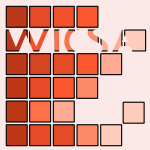 WICSA-2005-BosloperSN #modelling
WICSA-2005-BosloperSN #modelling- Explicit Models for Dynamic Software (IB, JS, JN), pp. 293–294.
 ITiCSE-2005-HabermanAG #algorithm
ITiCSE-2005-HabermanAG #algorithm- Is it really an algorithm: the need for explicit discourse (BH, HA, DG), pp. 74–78.
 WRLA-2004-CirsteaFK05 #calculus #constraints
WRLA-2004-CirsteaFK05 #calculus #constraints- A rho-Calculus of Explicit Constraint Application (HC, GF, CK), pp. 51–67.
 ESOP-2005-Myers #policy #programming #security
ESOP-2005-Myers #policy #programming #security- Programming with Explicit Security Policies (ACM), pp. 1–4.
 IFL-2005-EekelenM #proving #strict #tool support
IFL-2005-EekelenM #proving #strict #tool support- Proof Tool Support for Explicit Strictness (MCJDvE, MdM), pp. 37–54.
 MoDELS-2005-WagelaarJ #framework #modelling
MoDELS-2005-WagelaarJ #framework #modelling- Explicit Platform Models for MDA (DW, VJ), pp. 367–381.
 MoDELS-2005-WagelaarJ #framework #modelling
MoDELS-2005-WagelaarJ #framework #modelling- Explicit Platform Models for MDA (DW, VJ), pp. 367–381.
 OOPSLA-2005-AhernY #formal method #java
OOPSLA-2005-AhernY #formal method #java- Formalising Java RMI with explicit code mobility (AA, NY), pp. 403–422.
 OOPSLA-2005-HertzB #garbage collection #memory management #performance
OOPSLA-2005-HertzB #garbage collection #memory management #performance- Quantifying the performance of garbage collection vs. explicit memory management (MH, EDB), pp. 313–326.
 ICSE-2005-LagoV #architecture #modelling
ICSE-2005-LagoV #architecture #modelling- Explicit assumptions enrich architectural models (PL, HvV), pp. 206–214.
 CAV-2005-SebastianiTV #hybrid #ltl #model checking
CAV-2005-SebastianiTV #hybrid #ltl #model checking- Symbolic Systems, Explicit Properties: On Hybrid Approaches for LTL Symbolic Model Checking (RS, ST, MYV), pp. 350–363.
 RTA-2005-KesnerL #paradigm
RTA-2005-KesnerL #paradigm- Extending the Explicit Substitution Paradigm (DK, SL), pp. 407–422.
 DAC-2004-SaxenaH #modelling
DAC-2004-SaxenaH #modelling- Modeling repeaters explicitly within analytical placement (PS, BH), pp. 699–704.
 DocEng-2004-CarrMWWH #documentation
DocEng-2004-CarrMWWH #documentation- The case for explicit knowledge in documents (LC, TMB, AW, GW, WH), pp. 90–98.
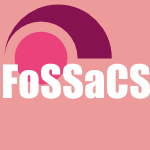 FoSSaCS-2004-Polonovski #calculus #normalisation #μ-calculus
FoSSaCS-2004-Polonovski #calculus #normalisation #μ-calculus- Strong Normalization of λμμ-Calculus with Explicit Substitutions (EP), pp. 423–437.
 FoSSaCS-2004-WischikG #bisimulation #calculus
FoSSaCS-2004-WischikG #bisimulation #calculus- Strong Bisimulation for the Explicit Fusion Calculus (LW, PG), pp. 484–498.
 SFM-2004-BaetenR #algebra #process #termination
SFM-2004-BaetenR #algebra #process #termination- Timed Process Algebra (With a Focus on Explicit Termination and Relative-Timing) (JCMB, MAR), pp. 59–97.
 ICEIS-v3-2004-HuijsenDJ #concept
ICEIS-v3-2004-HuijsenDJ #concept- Explicit Conceptualizations for Knowledge Mapping (WOH, SD, JJ), pp. 231–236.
 ICPR-v4-2004-OtsukaM #analysis #multi
ICPR-v4-2004-OtsukaM #analysis #multi- A Particle Filter for Tracking Densely Populated Objects Based on Explicit Multiview Occlusion Analysis (KO, NM), pp. 745–750.
 SAC-2004-KagklisLT #framework #specification
SAC-2004-KagklisLT #framework #specification- A framework for implicit and explicit service activation based on Service Level Specification (DK, NL, CT), pp. 363–368.
 FoSSaCS-2003-Bonelli #calculus #higher-order #normalisation
FoSSaCS-2003-Bonelli #calculus #higher-order #normalisation- A Normalisation Result for Higher-Order Calculi with Explicit Substitutions (EB), pp. 153–168.
 WCRE-2003-BaumstarkGW #representation #source code
WCRE-2003-BaumstarkGW #representation #source code- Extracting an Explicitly Data-Parallel Representation of Image-Processing Programs (LBBJ, MG, LMW), pp. 24–35.
 GPCE-2003-Dincklage #metaprogramming
GPCE-2003-Dincklage #metaprogramming- Making Patterns Explicit with Metaprogramming (DvD), pp. 287–306.
 PPDP-2003-NadathurQ #reduction
PPDP-2003-NadathurQ #reduction- Explicit substitutions in the reduction of λ terms (GN, XQ), pp. 195–206.
 CSL-2003-Artemov #logic
CSL-2003-Artemov #logic- Back to the Future: Explicit Logic for Computer Science (Invited Lecture) (SNA), p. 43.
 FoSSaCS-2002-SchoppS #process #using #verification
FoSSaCS-2002-SchoppS #process #using #verification- Verifying Temporal Properties Using Explicit Approximants: Completeness for Context-free Processes (US, AKS), pp. 372–386.
 TACAS-2002-WeddeW #distributed #modelling
TACAS-2002-WeddeW #distributed #modelling- Explicit Modeling of Influences, and of Their Absence, in Distributed Systems (HW, AW), pp. 127–141.
 IFM-2002-LanoCA #design #development #specification
IFM-2002-LanoCA #design #development #specification- From Implicit Specifications to Explicit Designs in Reactive System Development (KL, DC, KA), pp. 49–68.
 ASPLOS-2002-MartinezT #concurrent #parallel #thread
ASPLOS-2002-MartinezT #concurrent #parallel #thread- Speculative synchronization: applying thread-level speculation to explicitly parallel applications (JFM, JT), pp. 18–29.
 ICLP-2002-Cabalar #semantics
ICLP-2002-Cabalar #semantics- A Rewriting Method for Well-Founded Semantics with Explicit Negation (PC), pp. 378–392.
 RTA-2002-Forest #calculus #pattern matching
RTA-2002-Forest #calculus #pattern matching- A Weak Calculus with Explicit Operators for Pattern Matching and Substitution (JF), pp. 174–191.
 ASE-2001-Iosif #model checking #symmetry
ASE-2001-Iosif #model checking #symmetry- Exploiting Heap Symmetries in Explicit-State Model Checking of Software (RI), pp. 254–261.
 DAC-2001-LepakLH #constraints
DAC-2001-LepakLH #constraints- Simultaneous Shield Insertion and Net Ordering under Explicit RLC Noise Constraint (KML, IL, LH), pp. 199–202.
 DATE-2001-YuK #algorithm #distributed #performance
DATE-2001-YuK #algorithm #distributed #performance- Explicit formulas and efficient algorithm for moment computation of coupled RC trees with lumped and distributed elements (QY, ESK), pp. 445–450.
 ITiCSE-2001-Koppelman #abstraction #education
ITiCSE-2001-Koppelman #abstraction #education- Teaching abstraction explicitly (HK), p. 191.
 TACAS-2001-CimattiRB #automaton #model checking #set
TACAS-2001-CimattiRB #automaton #model checking #set- Searching Powerset Automata by Combining Explicit-State and Symbolic Model Checking (AC, MR, PB), pp. 313–327.
 PASTE-2001-AgrawalG #slicing
PASTE-2001-AgrawalG #slicing- Evaluating explicitly context-sensitive program slicing (GA, LG), pp. 6–12.
 STOC-2001-LachishR #bound
STOC-2001-LachishR #bound- Explicit lower bound of 4.5n — o(n) for boolena circuits (OL, RR), pp. 399–408.
 SEKE-2001-CasanovaWD #information management
SEKE-2001-CasanovaWD #information management- Explicit Domain Knowledge Model in Geographic Information Systems (MC, TW, MD), pp. 331–340.
 CC-2001-FrankeO #array #compilation #pointer
CC-2001-FrankeO #array #compilation #pointer- Compiler Transformation of Pointers to Explicit Array Accesses in DSP Applications (BF, MFPO), pp. 69–85.
 TLCA-2001-DoughertyL #reduction
TLCA-2001-DoughertyL #reduction- Reductions, Intersection Types, and Explicit Substitutions (DJD, PL), pp. 121–135.
 ASE-2000-KyaruziK #architecture #design #representation #towards
ASE-2000-KyaruziK #architecture #design #representation #towards- Towards Explicit Representation of Architectural Design Assumptions (JJK, JvK), pp. 249–252.
 ESOP-2000-LawallM #continuation
ESOP-2000-LawallM #continuation- Sharing Continuations: Proofnets for Languages with Explicit Control (JLL, HGM), pp. 245–259.
 FoSSaCS-2000-CosmoKP #proving
FoSSaCS-2000-CosmoKP #proving- Proof Nets and Explicit Substitutions (RDC, DK, EP), pp. 63–81.
 WRLA-2000-Stehr #calculus #named
WRLA-2000-Stehr #calculus #named- CINNI — A Generic Calculus of Explicit Substitutions and its Application to λ-, ς- and pi- Calculi (MOS), pp. 70–92.
 KDD-2000-DrummondH #representation
KDD-2000-DrummondH #representation- Explicitly representing expected cost: an alternative to ROC representation (CD, RCH), pp. 198–207.
 KDD-2000-FeldmanLRSS #approximate #bias #framework #information management #specification
KDD-2000-FeldmanLRSS #approximate #bias #framework #information management #specification- A framework for specifying explicit bias for revision of approximate information extraction rules (RF, YL, BR, YS, JS), pp. 189–197.
 UML-2000-Pazzi #behaviour #representation
UML-2000-Pazzi #behaviour #representation- Part-Whole Statecharts for the Explicit Representation of Compound Behaviors (LP), pp. 541–555.
 TOOLS-ASIA-2000-YuSYM #analysis #object-oriented
TOOLS-ASIA-2000-YuSYM #analysis #object-oriented- Improving Object Oriented Analysis by Explicit Change Analysis (LY, CKS, XY, YM), pp. 2–7.
 PPDP-2000-Ayala-RinconK #unification
PPDP-2000-Ayala-RinconK #unification- Unification via se-style of explicit substitution (MAR, FK), pp. 163–174.
 CSL-2000-KahleS #formal method
CSL-2000-KahleS #formal method- A Theory of Explicit Mathematics Equivalent to ID1 (RK, TS), pp. 356–370.
 CSL-2000-Kuznets #complexity #logic #on the
CSL-2000-Kuznets #complexity #logic #on the- On the Complexity of Explicit Modal Logics (RK), pp. 371–383.
 RTA-2000-BjornerM #unification
RTA-2000-BjornerM #unification- Absolute Explicit Unification (NB, CM), pp. 31–46.
 RTA-2000-Pichler
RTA-2000-Pichler- The Explicit Representability of Implicit Generalizations (RP), pp. 187–202.
 FASE-1999-LopesF #using
FASE-1999-LopesF #using- Using Explicit State to Describe Architechtures (AL, JLF), pp. 144–160.
 FoSSaCS-1999-GhaniPR #category theory #modelling
FoSSaCS-1999-GhaniPR #category theory #modelling- Categorical Models of Explicit Substitutions (NG, VdP, ER), pp. 197–211.
 ACIR-1999-DoanB #concept #documentation
ACIR-1999-DoanB #concept #documentation- Virtual WWW Documents: a Concept to Explicit the Structure of WWW Sites (BLD, MB).
 TOOLS-EUROPE-1999-Mikhajlova99a #component #consistency #invariant
TOOLS-EUROPE-1999-Mikhajlova99a #component #consistency #invariant- Consistent Extension of Components in the Presence of Explicit Invariants (AM), pp. 76–85.
 TOOLS-EUROPE-1999-SosioT #architecture #design #object-oriented
TOOLS-EUROPE-1999-SosioT #architecture #design #object-oriented- A Design Model for Object Oriented Systems with Explicit Architecture (AS, FT), pp. 46–55.
 PPoPP-1999-KnoopS #parallel #source code
PPoPP-1999-KnoopS #parallel #source code- Code Motion for Explicitly Parallel Programs (JK, BS), pp. 13–24.
 CADE-1999-Artemov #on the #proving #theorem proving #verification
CADE-1999-Artemov #on the #proving #theorem proving #verification- On Explicit Reflection in Theorem Proving and Formal Verification (SNA), pp. 267–281.
 CSL-1999-Bonelli #using
CSL-1999-Bonelli #using- Using Fields and Explicit Substitutions to Implement Objects and Functions in a de Bruijn Setting (EB), pp. 204–219.
 TLCA-1999-Fujita #call-by #morphism #polymorphism #λ-calculus #μ-calculus
TLCA-1999-Fujita #call-by #morphism #polymorphism #λ-calculus #μ-calculus- Explicitly Typed λμ-Calculus for Polymorphism an Call-by-Value (KeF), pp. 162–176.
 TLCA-1999-Ritter #termination
TLCA-1999-Ritter #termination- Characterising Explicit Substitutions which Preserve Termination (ER), pp. 325–339.
 TLCA-1999-SatoSB
TLCA-1999-SatoSB- Explicit Environments (MS, TS, RMB), pp. 340–354.
 PLDI-1998-GayA #memory management
PLDI-1998-GayA #memory management- Memory Management with Explicit Regions (DG, AA), pp. 313–323.
 SAS-1998-Duggan #finite #morphism #polymorphism #type inference #type system
SAS-1998-Duggan #finite #morphism #polymorphism #type inference #type system- Finite Subtype Inference with Explicit Polymorphism (DD), pp. 295–310.
 ICALP-1998-GhaniPR
ICALP-1998-GhaniPR- Explicit Substitutions for Constructive Necessity (NG, VdP, ER), pp. 743–754.
 IFL-1998-SerrarensP #concurrent #message passing
IFL-1998-SerrarensP #concurrent #message passing- Explicit Message Passing for Concurrent Clean (PRS, MJP), pp. 229–245.
 ICPR-1998-GroweT #3d #evaluation #image
ICPR-1998-GroweT #3d #evaluation #image- Use of explicit knowledge and GIS data for the 3D evaluation of remote sensing images (SG, RT), pp. 1413–1415.
 ICPR-1998-SeemannT #image #segmentation #using
ICPR-1998-SeemannT #image #segmentation #using- Structure preserving noise filtering of images using explicit local segmentation (TS, PET), pp. 1610–1612.
 ALP-PLILP-1998-KesnerL
ALP-PLILP-1998-KesnerL- Explicit Substitutions for Objects and Functions (DK, PEML), pp. 195–212.
 CADE-1998-Pagano #calculus #first-order #higher-order #reduction
CADE-1998-Pagano #calculus #first-order #higher-order #reduction- X.R.S : Explicit Reduction Systems — A First-Order Calculus for Higher-Order Calculi (BP), pp. 72–87.
 EDTC-1997-ChiusanoCPR #graph #hybrid #problem
EDTC-1997-ChiusanoCPR #graph #hybrid #problem- Hybrid symbolic-explicit techniques for the graph coloring problem (SC, FC, PP, MSR), pp. 422–426.
 PEPM-1997-TahaS #multi #programming
PEPM-1997-TahaS #multi #programming- Multi-Stage Programming with Explicit Annotations (WT, TS), pp. 203–217.
 ICALP-1997-RitterP #on the
ICALP-1997-RitterP #on the- On Explicit Substitution and Names (Extended Abstract) (ER, VdP), pp. 248–258.
 ICFP-1997-RichardST #set #using
ICFP-1997-RichardST #set #using- Intensional Sets Using Explicit Substitutions (GR, FS, ATA), p. 318.
 ALP-1997-BartheKR #λ-calculus
ALP-1997-BartheKR #λ-calculus- Explicit Substitutions for the λ-Calculus (GB, FK, AR), pp. 209–223.
 ALP-1997-KirchnerR #equation #higher-order #unification
ALP-1997-KirchnerR #equation #higher-order #unification- Higher-Order Equational Unification via Explicit Substitutions (CK, CR), pp. 61–75.
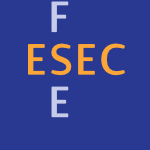 ESEC-FSE-1997-MeijlerDE #adaptation #composition #design pattern
ESEC-FSE-1997-MeijlerDE #adaptation #composition #design pattern- Making Design Patterns Explicit in FACE: A Frame Work Adaptive Composition Environment (TDM, SD, RE), pp. 94–110.
 HPCA-1997-QinB #communication #multi #on the #performance
HPCA-1997-QinB #communication #multi #on the #performance- On the Use and Performance of Explicit Communication Primitives in Cache-Coherent Multiprocessor Systems (XQ, JLB), pp. 182–193.
 LICS-1997-CosmoK #normalisation #proving
LICS-1997-CosmoK #normalisation #proving- Strong Normalization of Explicit Substitutions via Cut Elimination in Proof Nets (Extended Abstract) (RDC, DK), pp. 35–46.
 DAC-1996-LillisCLH #performance #trade-off
DAC-1996-LillisCLH #performance #trade-off- New Performance Driven Routing Techniques With Explicit Area/Delay Tradeoff and Simultaneous Wire Sizing (JL, CKC, TTYL, CYH), pp. 395–400.
 DAC-1996-TutuianuDP #approximate
DAC-1996-TutuianuDP #approximate- An Explicit RC-Circuit Delay Approximation Based on the First Three Moments of the Impulse Response (BT, FD, LTP), pp. 611–616.
 FME-1996-Clement #abstraction
FME-1996-Clement #abstraction- Data Reification without Explicit Abstraction Functions (TC), pp. 195–213.
 ECOOP-1996-AmielD #ambiguity #multi
ECOOP-1996-AmielD #ambiguity #multi- Supporting Explicit Disambiguation of Multi-Methods (EA, ED), pp. 167–188.
 ALP-1996-FerreiraKP #composition #normalisation #λ-calculus
ALP-1996-FerreiraKP #composition #normalisation #λ-calculus- λ-Calculi with Explicit Substitutions and Composition Which Preserve β-Strong Normalization (MCFF, DK, LP), pp. 284–298.
 PLILP-1996-BenaissaLR #modelling #recursion #reduction #using
PLILP-1996-BenaissaLR #modelling #recursion #reduction #using- Modeling Sharing and Recursion for Weak Reduction Strategies Using Explicit Substitution (ZEAB, PL, KHR), pp. 393–407.
 PLILP-1996-KamareddineR
PLILP-1996-KamareddineR- Generalized β-Reduction and Explicit Substitution (FK, AR), pp. 378–392.
 CSL-1996-Otto #invariant #logic
CSL-1996-Otto #invariant #logic- The Logic of Explicitly Presentation-Invariant Circuits (MO), pp. 369–384.
 JICSLP-1996-DowekHKP #higher-order #unification
JICSLP-1996-DowekHKP #higher-order #unification- Unification via Explicit Substitutions: The Case of Higher-Order Patterns (GD, TH, CK, FP), pp. 259–273.
 LICS-1996-Munoz #calculus #confluence #normalisation
LICS-1996-Munoz #calculus #confluence #normalisation- Confluence and Preservation of Strong Normalisation in an Explicit Substitutions Calculus (CAM), pp. 440–447.
 RTA-1996-BlooR #combinator #reduction
RTA-1996-BlooR #combinator #reduction- Combinatory Reduction Systems with Explicit Substitution that Preserve Strong Nomalisation (RB, KHR), pp. 169–183.
 RTA-1996-Kesner #confluence #λ-calculus
RTA-1996-Kesner #confluence #λ-calculus- Confluence Properties of Extensional and Non-Extensional λ-Calculi with Explicit Substitutions (Extended Abstract) (DK), pp. 184–199.
 ICDAR-v1-1995-KaneharaSH #flexibility #image #retrieval #using #visual notation
ICDAR-v1-1995-KaneharaSH #flexibility #image #retrieval #using #visual notation- A flexible image retrieval using explicit visual instruction (FK, SS, TH), pp. 175–178.
 PLDI-1995-KrishnamurthyY #optimisation #parallel #source code
PLDI-1995-KrishnamurthyY #optimisation #parallel #source code- Optimizing Parallel Programs with Explicit Synchronization (AK, KAY), pp. 196–204.
 STOC-1995-SaksSZ
STOC-1995-SaksSZ- Explicit dispersers with polylog degree (MES, AS, SZ), pp. 479–488.
 OOPSLA-1995-MuletMC #composition #towards
OOPSLA-1995-MuletMC #composition #towards- Towards a Methodology for Explicit Composition of MetaObjects (PM, JM, PC), pp. 316–330.
 PLILP-1995-KamareddineR #λ-calculus
PLILP-1995-KamareddineR #λ-calculus- A λ-calculus à la de Bruijn with Explicit Substitutions (FK, AR), pp. 45–62.
 ILPS-1995-Millroth #parallel #trade-off #tutorial
ILPS-1995-Millroth #parallel #trade-off #tutorial- Tradeoffs Explicit and Omplicit Parallelism (Tutorial Abstract) (HM), p. 614.
 LICS-1995-DowekHK #higher-order #unification
LICS-1995-DowekHK #higher-order #unification- Higher-Order Unification via Explicit Substitutions (Extended Abstract) (GD, TH, CK), pp. 366–374.
 RTA-1995-LescanneR
RTA-1995-LescanneR- Explicit Substitutions with de Bruijn’s Levels (PL, JRD), pp. 294–308.
 TLCA-1995-Briaud
TLCA-1995-Briaud- An explicit Eta rewrite rule (DB), pp. 94–108.
 TLCA-1995-Mellie #λ-calculus
TLCA-1995-Mellie #λ-calculus- Typed λ-calculi with explicit substitutions may not terminate (PAM), pp. 328–334.
 FME-1994-Larsen #evaluation
FME-1994-Larsen #evaluation- Evaluation of Underdetermined Explicit Definitions (PGL), pp. 233–250.
 LFP-1994-Tolmach #garbage collection #parametricity #using
LFP-1994-Tolmach #garbage collection #parametricity #using- Tag-Free Garbage Collection Using Explicit Type Parameters (APT), pp. 1–11.
 POPL-1994-Lescanne #calculus
POPL-1994-Lescanne #calculus- From λσ to λν: a Journey Through Calculi of Explicit Substitutions (PL), pp. 60–69.
 ILPS-1994-AlferesDP #named #source code #top-down
ILPS-1994-AlferesDP #named #source code #top-down- SLX — A Top-down Derivation Procedure for Programs with Explicit Negation (JJA, CVD, LMP), pp. 424–438.
 STOC-1993-WigdersonZ #bound
STOC-1993-WigdersonZ #bound- Expanders that beat the eigenvalue bound: explicit construction and applications (AW, DZ), pp. 245–251.
 OOPSLA-1993-Hauck #approach #inheritance
OOPSLA-1993-Hauck #approach #inheritance- Inheritance Modeled with Explicit Bindings: An Approach to Typed Inheritance (FJH), pp. 231–239.
 POPL-1993-HarperL #continuation #morphism #polymorphism
POPL-1993-HarperL #continuation #morphism #polymorphism- Explicit Polymorphism and CPS Conversion (RH, ML), pp. 206–219.
 POPL-1993-SrinivasanHW #parallel #source code
POPL-1993-SrinivasanHW #parallel #source code- Static Single Assignment for Explicitely Parallel Programs (HS, JH, MW), pp. 260–272.
 PPoPP-1993-BalaFC #optimisation #representation
PPoPP-1993-BalaFC #optimisation #representation- Explicit Data Placement (XDP): A Methodology for Explicit Compile-Time Representation and Optimization (VB, JF, LC), pp. 139–148.
 PPoPP-1993-GrunwaldS #data flow #equation #parallel #source code
PPoPP-1993-GrunwaldS #data flow #equation #parallel #source code- Data Flow Equations for Explicitly Parallel Programs (DG, HS), pp. 159–168.
 CSL-1993-Ritter #normalisation #λ-calculus
CSL-1993-Ritter #normalisation #λ-calculus- Normalization for Typed λ Calculi with Explicit Substitution (ER), pp. 295–304.
 ICLP-1993-Dung93a #logic programming #semantics
ICLP-1993-Dung93a #logic programming #semantics- An Argumentation Semantics for Logic Programming with Explicit Negation (PMD), pp. 616–630.
 LFP-1992-Bondorf
LFP-1992-Bondorf- Improving Binding Times Without Explicit CPS-Conversion (AB), pp. 1–10.
 KR-1992-Delgrande #logic
KR-1992-Delgrande #logic- Accessibility in Logics of Explicit Belief (JPD), pp. 450–461.
 ALP-1992-Hardin
ALP-1992-Hardin- Eta-conversion for the Languages of Explicit Substitutions (TH), pp. 306–321.
 STOC-1991-DjidjevR #algorithm #performance #problem
STOC-1991-DjidjevR #algorithm #performance #problem- An Efficient Algorithm for the Genus Problem with Explicit Construction of Forbidden Subgraphs (HD, JHR), pp. 337–347.
 KR-1991-Lakemeyer #on the
KR-1991-Lakemeyer #on the- On the Relation between Explicit and Implicit Belief (GL), pp. 368–375.
 POPL-1990-AbadiCCL
POPL-1990-AbadiCCL- Explicit Substitutions (MA, LC, PLC, JJL), pp. 31–46.
 LICS-1990-HarelLP #logic
LICS-1990-HarelLP #logic- Explicit Clock Temporal Logic (EH, OL, AP), pp. 402–413.
 ML-1989-Danyluk #bias #induction #information management
ML-1989-Danyluk #bias #induction #information management- Finding New Rules for Incomplete Theories: Explicit Biases for Induction with Contextual Information (APD), pp. 34–36.
 ML-1989-Gordon #bias
ML-1989-Gordon #bias- Screening Hypotheses with Explicit Bias (DFG), pp. 499–500.
 OOPSLA-1989-BriotC #programming
OOPSLA-1989-BriotC #programming- Programming with Explicit Metaclasses in Smalltalk-80 (JPB, PC), pp. 419–431.
 LICS-1989-Breazu-TannenCGS #inheritance
LICS-1989-Breazu-TannenCGS #inheritance- Inheritance and Explicit Coercion (Preliminary Report) (VT, TC, CAG, AS), pp. 112–129.
 PODS-1988-ImielinskiN #algebra #logic programming #source code
PODS-1988-ImielinskiN #algebra #logic programming #source code- Explicit Control of Logic Programs Through Rule Algebra (TI, SAN), pp. 103–116.
 CADE-1988-Bundy #induction #proving
CADE-1988-Bundy #induction #proving- The Use of Explicit Plans to Guide Inductive Proofs (AB), pp. 111–120.
 HT-1987-Collier #hypermedia #named #semantics
HT-1987-Collier #hypermedia #named #semantics- Thoth-II: Hypertext with Explicit Semantics (GHC), pp. 269–289.
 STOC-1986-LubotzkyPS
STOC-1986-LubotzkyPS- Explicit Expanders and the Ramanujan Conjectures (AL, RP, PS), pp. 240–246.
 LFP-1984-Smolka #data flow #logic programming #source code
LFP-1984-Smolka #data flow #logic programming #source code- Making Control and Data Flow in Logic Programs Explicit (GS), pp. 311–322.
 LISP-1980-Print #parallel
LISP-1980-Print #parallel- Explicit Parallelism in LISP-like Languages (GP), pp. 13–18.
 SCC-1979-GrahamJR
SCC-1979-GrahamJR- Hashed symbol tables for languages with explicit scope control (SLG, WNJ, OR), pp. 50–57.
 GG-1978-GrotschN #graph #parallel
GG-1978-GrotschN #graph #parallel- Explicit versus Implicit Parallel Rewriting on Graphs (EG, MN), pp. 237–254.
 TACAS-2015-RenaultDKP #automaton #model checking #parallel
TACAS-2015-RenaultDKP #automaton #model checking #parallel DHM-HM-2015-KikuchiSTGH #information management
DHM-HM-2015-KikuchiSTGH #information management ICML-2015-Yang0JZ #bound #fault #set
ICML-2015-Yang0JZ #bound #fault #set OOPSLA-2015-BastaniAA #android #data flow #verification
OOPSLA-2015-BastaniAA #android #data flow #verification SAC-2015-PapouliasDDF #towards
SAC-2015-PapouliasDDF #towards ICSE-v2-2015-Jayaram #framework #programming #towards
ICSE-v2-2015-Jayaram #framework #programming #towards SPLC-2015-ColaLTQ #product line
SPLC-2015-ColaLTQ #product line CC-2015-BourkeCPPP #code generation #hybrid
CC-2015-BourkeCPPP #code generation #hybrid ISSTA-2015-ClappAA #data flow #mining #named #specification
ISSTA-2015-ClappAA #data flow #mining #named #specification ITiCSE-2014-Isomottonen #process #student
ITiCSE-2014-Isomottonen #process #student TACAS-2014-LoweMW #analysis #contest
TACAS-2014-LoweMW #analysis #contest DHM-2014-KikuchiTTGH #information management
DHM-2014-KikuchiTTGH #information management ICPR-2014-MekonnenLHB #detection #optimisation #people
ICPR-2014-MekonnenLHB #detection #optimisation #people ICPR-2014-Sahbi #image #kernel
ICPR-2014-Sahbi #image #kernel RecSys-2014-FazeliLBDS #matrix #social #trust
RecSys-2014-FazeliLBDS #matrix #social #trust SIGIR-2014-ZhangL0ZLM #analysis #modelling #recommendation #sentiment
SIGIR-2014-ZhangL0ZLM #analysis #modelling #recommendation #sentiment MoDELS-2014-BakiSCMF #learning #model transformation
MoDELS-2014-BakiSCMF #learning #model transformation MoDELS-2014-BakiSCMF #learning #model transformation
MoDELS-2014-BakiSCMF #learning #model transformation PLATEAU-2014-CoblenzAMS
PLATEAU-2014-CoblenzAMS TAP-2014-KanigCCGMR #verification
TAP-2014-KanigCCGMR #verification DAC-2013-ColmenaresEHBMCGRBMAK #adaptation #named #refactoring
DAC-2013-ColmenaresEHBMCGRBMAK #adaptation #named #refactoring DATE-2013-FourmigueBN #3d #simulation
DATE-2013-FourmigueBN #3d #simulation DATE-2013-GaoGB #fault tolerance #scheduling #using
DATE-2013-GaoGB #fault tolerance #scheduling #using FASE-2013-BeyerL #model checking
FASE-2013-BeyerL #model checking TACAS-2013-Lowe #analysis #contest
TACAS-2013-Lowe #analysis #contest TACAS-2013-Wendler #analysis #contest
TACAS-2013-Wendler #analysis #contest STOC-2013-BurgisserI #bound #complexity #geometry
STOC-2013-BurgisserI #bound #complexity #geometry DLT-2013-Pin #regular expression
DLT-2013-Pin #regular expression ICFP-2013-WeirichHE #similarity
ICFP-2013-WeirichHE #similarity DHM-SET-2013-MazzolaMBPAPP #process
DHM-SET-2013-MazzolaMBPAPP #process HILT-2013-CourtieuACZRBHG #coq #formal method #runtime #semantics #towards #using
HILT-2013-CourtieuACZRBHG #coq #formal method #runtime #semantics #towards #using KDD-2013-PhamP #kernel #performance #polynomial #scalability
KDD-2013-PhamP #kernel #performance #polynomial #scalability SIGIR-2013-LagunSWBB #feedback
SIGIR-2013-LagunSWBB #feedback SIGIR-2013-SonKP #analysis #locality #recommendation #semantics
SIGIR-2013-SonKP #analysis #locality #recommendation #semantics CAV-2013-BarnatBHHKLRSW #c #c++ #model checking #parallel #source code #thread
CAV-2013-BarnatBHHKLRSW #c #c++ #model checking #parallel #source code #thread CAV-2013-BinghamBEG #concurrent #distributed #model checking
CAV-2013-BinghamBEG #concurrent #distributed #model checking LICS-2013-GundersenHP #λ-calculus
LICS-2013-GundersenHP #λ-calculus DAC-2012-KahngLN #estimation #modelling
DAC-2012-KahngLN #estimation #modelling DATE-2012-SheHMC #architecture #energy #scheduling
DATE-2012-SheHMC #architecture #energy #scheduling FLOPS-2012-Uustalu #performance
FLOPS-2012-Uustalu #performance FM-2012-ChristakisMW #collaboration #testing #verification
FM-2012-ChristakisMW #collaboration #testing #verification ICFP-2012-Mainland #haskell #metaprogramming
ICFP-2012-Mainland #haskell #metaprogramming CHI-2012-HoarauC #interactive #visual notation
CHI-2012-HoarauC #interactive #visual notation ICEIS-J-2012-PereiraBB12a #aspect-oriented #design #process
ICEIS-J-2012-PereiraBB12a #aspect-oriented #design #process CIKM-2012-LiuW #analysis #on the #semantics
CIKM-2012-LiuW #analysis #on the #semantics CIKM-2012-YuR #identification #query
CIKM-2012-YuR #identification #query ICPR-2012-KongW #clustering #learning #multi
ICPR-2012-KongW #clustering #learning #multi ICPR-2012-LeiWPMY #robust
ICPR-2012-LeiWPMY #robust ICPR-2012-ZarrouatiAR #robust
ICPR-2012-ZarrouatiAR #robust RecSys-2012-MolingBR #feedback #recommendation
RecSys-2012-MolingBR #feedback #recommendation SIGIR-2012-HechtCQSRGD #semantics
SIGIR-2012-HechtCQSRGD #semantics SIGIR-2012-HeHV #topic
SIGIR-2012-HeHV #topic SIGIR-2012-VargasCV #information retrieval #modelling
SIGIR-2012-VargasCV #information retrieval #modelling TOOLS-EUROPE-2012-JezekBH #independence
TOOLS-EUROPE-2012-JezekBH #independence SAC-2012-NetoA #analysis #process
SAC-2012-NetoA #analysis #process SAC-2012-WinterB
SAC-2012-WinterB CGO-2012-JangLSL #automation #memory management #multi
CGO-2012-JangLSL #automation #memory management #multi RTA-2012-Accattoli #theorem
RTA-2012-Accattoli #theorem DATE-2011-TendulkarPNKNK #communication #hardware #runtime
DATE-2011-TendulkarPNKNK #communication #hardware #runtime ICDAR-2011-LuqmanRLB #documentation #graph #image
ICDAR-2011-LuqmanRLB #documentation #graph #image ITiCSE-2011-BowerM #comparison #learning
ITiCSE-2011-BowerM #comparison #learning STOC-2011-BourgainDFKK #matrix
STOC-2011-BourgainDFKK #matrix STOC-2011-FawziHS #nondeterminism #performance
STOC-2011-FawziHS #nondeterminism #performance ICALP-v2-2011-ZhangB #model checking #probability
ICALP-v2-2011-ZhangB #model checking #probability CHI-2011-GuiardOP #fault #trade-off
CHI-2011-GuiardOP #fault #trade-off HIMI-v1-2011-FriedemannRTSS #modelling #visualisation
HIMI-v1-2011-FriedemannRTSS #modelling #visualisation CIKM-2011-GottronAS #analysis #semantics
CIKM-2011-GottronAS #analysis #semantics CIKM-2011-LoSZL #community #mining #network #trust
CIKM-2011-LoSZL #community #mining #network #trust ICML-2011-RifaiVMGB #feature model
ICML-2011-RifaiVMGB #feature model PADL-2011-DevrieseP #combinator #domain-specific language #recursion #semiparsing
PADL-2011-DevrieseP #combinator #domain-specific language #recursion #semiparsing PADL-2011-HolkBWHCL #communication #declarative #named
PADL-2011-HolkBWHCL #communication #declarative #named PPoPP-2011-FengGH #commit #named #parallel #scalability
PPoPP-2011-FengGH #commit #named #parallel #scalability ESOP-2010-WickersonDP #composition #reasoning
ESOP-2010-WickersonDP #composition #reasoning FASE-2010-BeyerHTZ #analysis #refinement
FASE-2010-BeyerHTZ #analysis #refinement CSMR-2010-LiuM #analysis #case study #data flow
CSMR-2010-LiuM #analysis #case study #data flow PASTE-2010-HaC #communication #concurrent #dynamic analysis
PASTE-2010-HaC #communication #concurrent #dynamic analysis STOC-2010-Talagrand #question #set
STOC-2010-Talagrand #question #set IFM-2010-DiosMP #pointer
IFM-2010-DiosMP #pointer CHI-2010-KuikkaniemiLTSKR #game studies
CHI-2010-KuikkaniemiLTSKR #game studies CIKM-2010-LiuXZY #collaboration #feedback
CIKM-2010-LiuXZY #collaboration #feedback ECIR-2010-BroschartBS #quality #retrieval
ECIR-2010-BroschartBS #quality #retrieval ECIR-2010-SantosPMO
ECIR-2010-SantosPMO ICPR-2010-GaschlerBH #3d #re-engineering
ICPR-2010-GaschlerBH #3d #re-engineering RecSys-2010-JawaheerSK #feedback #music #online #recommendation
RecSys-2010-JawaheerSK #feedback #music #online #recommendation RecSys-2010-PilaszyZT #dataset #feedback #matrix #performance
RecSys-2010-PilaszyZT #dataset #feedback #matrix #performance PADL-2010-Iborra #exception #haskell
PADL-2010-Iborra #exception #haskell HPDC-2010-RajannaSJLG #clustering #coordination #in the cloud #named #network
HPDC-2010-RajannaSJLG #clustering #coordination #in the cloud #named #network IJCAR-2010-Schack-NielsenS #linear #λ-calculus
IJCAR-2010-Schack-NielsenS #linear #λ-calculus ASE-2009-NistorH #development
ASE-2009-NistorH #development DAC-2009-DongL #integration #performance #simulation
DAC-2009-DongL #integration #performance #simulation DATE-2009-CabodiCGMNQ #constraints #model checking #verification
DATE-2009-CabodiCGMNQ #constraints #model checking #verification DATE-2009-MarongiuB #memory management #performance
DATE-2009-MarongiuB #memory management #performance ICDAR-2009-DelayeAM #fuzzy #modelling #recognition
ICDAR-2009-DelayeAM #fuzzy #modelling #recognition PLDI-2009-LivshitsNRB #data flow #named #problem #specification
PLDI-2009-LivshitsNRB #data flow #named #problem #specification STOC-2009-RabaniS #linear
STOC-2009-RabaniS #linear ICALP-v2-2009-MelliesTT #exponential #linear #logic
ICALP-v2-2009-MelliesTT #exponential #linear #logic CHI-2009-KostakosO #assessment #design #trust
CHI-2009-KostakosO #assessment #design #trust SLE-2009-LaarmanK #metamodelling #ontology
SLE-2009-LaarmanK #metamodelling #ontology PPoPP-2009-SchneiderYRLSN #comparison #memory management #modelling #multi #programming
PPoPP-2009-SchneiderYRLSN #comparison #memory management #modelling #multi #programming RTA-2009-Falco #framework #interactive
RTA-2009-Falco #framework #interactive ECSA-2008-FankamJBA #approach #architecture #database #ontology #semantics
ECSA-2008-FankamJBA #approach #architecture #database #ontology #semantics PASTE-2008-LiuM #data flow #static analysis
PASTE-2008-LiuM #data flow #static analysis ICALP-A-2008-PoratR #adaptation #combinator #testing
ICALP-A-2008-PoratR #adaptation #combinator #testing SIGIR-2008-KeskustaloJPK #higher-order #performance #visualisation
SIGIR-2008-KeskustaloJPK #higher-order #performance #visualisation PPDP-2008-PientkaD #programming #proving
PPDP-2008-PientkaD #programming #proving ICSE-2008-NiggemannS #modelling #why
ICSE-2008-NiggemannS #modelling #why PPoPP-2008-BaskaranBKRRS #architecture #automation #data flow #parallel
PPoPP-2008-BaskaranBKRRS #architecture #automation #data flow #parallel ICLP-2008-ArandaPRV #behaviour #concurrent #constraints #probability #programming
ICLP-2008-ArandaPRV #behaviour #concurrent #constraints #probability #programming RTA-2008-BallandM #graph grammar
RTA-2008-BallandM #graph grammar WRLA-J-2004-CirsteaFK07 #calculus #constraints
WRLA-J-2004-CirsteaFK07 #calculus #constraints STOC-2007-Indyk #nondeterminism
STOC-2007-Indyk #nondeterminism SEFM-2007-RungtaM #benchmark #metric #model checking
SEFM-2007-RungtaM #benchmark #metric #model checking SAC-2007-SchreinerG #component #embedded #modelling #uml
SAC-2007-SchreinerG #component #embedded #modelling #uml ICSE-2007-MalekSRPM #architecture #concept #embedded #product line
ICSE-2007-MalekSRPM #architecture #concept #embedded #product line PPoPP-2007-KnightPRHEFADH #compilation #memory management
PPoPP-2007-KnightPRHEFADH #compilation #memory management CSL-2007-Kesner #calculus #formal method #revisited
CSL-2007-Kesner #calculus #formal method #revisited RTA-2007-Kikuchi #calculus #normalisation #proving
RTA-2007-Kikuchi #calculus #normalisation #proving RTA-2007-Pfenning #logic #on the
RTA-2007-Pfenning #logic #on the TLCA-2007-Pfenning #logic #on the
TLCA-2007-Pfenning #logic #on the DATE-2006-McConaghyG #canonical #modelling #performance
DATE-2006-McConaghyG #canonical #modelling #performance TACAS-2006-GaravelMBCDJSS #distributed #generative #tool support
TACAS-2006-GaravelMBCDJSS #distributed #generative #tool support PEPM-2006-LewisJ #analysis #model checking
PEPM-2006-LewisJ #analysis #model checking STOC-2006-GuruswamiR
STOC-2006-GuruswamiR IFL-2006-BertholdL #coordination #functional #parallel
IFL-2006-BertholdL #coordination #functional #parallel CIKM-2006-ZigorisZ #adaptation #feedback #profiling
CIKM-2006-ZigorisZ #adaptation #feedback #profiling ICPR-v2-2006-BenouarethES #recognition #word
ICPR-v2-2006-BenouarethES #recognition #word PPDP-2006-NguyenO #compilation #layout #ml #morphism #polymorphism
PPDP-2006-NguyenO #compilation #layout #ml #morphism #polymorphism ICSE-2006-Jansen #process
ICSE-2006-Jansen #process OSDI-2006-ZeldovichBKM #data flow
OSDI-2006-ZeldovichBKM #data flow CAV-2006-SenA #model checking #testing #tool support
CAV-2006-SenA #model checking #testing #tool support LICS-2006-Leivant #logic #proving #reasoning #source code
LICS-2006-Leivant #logic #proving #reasoning #source code WICSA-2005-BosloperSN #modelling
WICSA-2005-BosloperSN #modelling ITiCSE-2005-HabermanAG #algorithm
ITiCSE-2005-HabermanAG #algorithm WRLA-2004-CirsteaFK05 #calculus #constraints
WRLA-2004-CirsteaFK05 #calculus #constraints ESOP-2005-Myers #policy #programming #security
ESOP-2005-Myers #policy #programming #security IFL-2005-EekelenM #proving #strict #tool support
IFL-2005-EekelenM #proving #strict #tool support MoDELS-2005-WagelaarJ #framework #modelling
MoDELS-2005-WagelaarJ #framework #modelling MoDELS-2005-WagelaarJ #framework #modelling
MoDELS-2005-WagelaarJ #framework #modelling OOPSLA-2005-AhernY #formal method #java
OOPSLA-2005-AhernY #formal method #java OOPSLA-2005-HertzB #garbage collection #memory management #performance
OOPSLA-2005-HertzB #garbage collection #memory management #performance ICSE-2005-LagoV #architecture #modelling
ICSE-2005-LagoV #architecture #modelling CAV-2005-SebastianiTV #hybrid #ltl #model checking
CAV-2005-SebastianiTV #hybrid #ltl #model checking RTA-2005-KesnerL #paradigm
RTA-2005-KesnerL #paradigm DAC-2004-SaxenaH #modelling
DAC-2004-SaxenaH #modelling DocEng-2004-CarrMWWH #documentation
DocEng-2004-CarrMWWH #documentation FoSSaCS-2004-Polonovski #calculus #normalisation #μ-calculus
FoSSaCS-2004-Polonovski #calculus #normalisation #μ-calculus FoSSaCS-2004-WischikG #bisimulation #calculus
FoSSaCS-2004-WischikG #bisimulation #calculus SFM-2004-BaetenR #algebra #process #termination
SFM-2004-BaetenR #algebra #process #termination ICEIS-v3-2004-HuijsenDJ #concept
ICEIS-v3-2004-HuijsenDJ #concept ICPR-v4-2004-OtsukaM #analysis #multi
ICPR-v4-2004-OtsukaM #analysis #multi SAC-2004-KagklisLT #framework #specification
SAC-2004-KagklisLT #framework #specification FoSSaCS-2003-Bonelli #calculus #higher-order #normalisation
FoSSaCS-2003-Bonelli #calculus #higher-order #normalisation WCRE-2003-BaumstarkGW #representation #source code
WCRE-2003-BaumstarkGW #representation #source code GPCE-2003-Dincklage #metaprogramming
GPCE-2003-Dincklage #metaprogramming PPDP-2003-NadathurQ #reduction
PPDP-2003-NadathurQ #reduction CSL-2003-Artemov #logic
CSL-2003-Artemov #logic FoSSaCS-2002-SchoppS #process #using #verification
FoSSaCS-2002-SchoppS #process #using #verification TACAS-2002-WeddeW #distributed #modelling
TACAS-2002-WeddeW #distributed #modelling IFM-2002-LanoCA #design #development #specification
IFM-2002-LanoCA #design #development #specification ASPLOS-2002-MartinezT #concurrent #parallel #thread
ASPLOS-2002-MartinezT #concurrent #parallel #thread ICLP-2002-Cabalar #semantics
ICLP-2002-Cabalar #semantics RTA-2002-Forest #calculus #pattern matching
RTA-2002-Forest #calculus #pattern matching ASE-2001-Iosif #model checking #symmetry
ASE-2001-Iosif #model checking #symmetry DAC-2001-LepakLH #constraints
DAC-2001-LepakLH #constraints DATE-2001-YuK #algorithm #distributed #performance
DATE-2001-YuK #algorithm #distributed #performance ITiCSE-2001-Koppelman #abstraction #education
ITiCSE-2001-Koppelman #abstraction #education TACAS-2001-CimattiRB #automaton #model checking #set
TACAS-2001-CimattiRB #automaton #model checking #set PASTE-2001-AgrawalG #slicing
PASTE-2001-AgrawalG #slicing STOC-2001-LachishR #bound
STOC-2001-LachishR #bound SEKE-2001-CasanovaWD #information management
SEKE-2001-CasanovaWD #information management CC-2001-FrankeO #array #compilation #pointer
CC-2001-FrankeO #array #compilation #pointer TLCA-2001-DoughertyL #reduction
TLCA-2001-DoughertyL #reduction ASE-2000-KyaruziK #architecture #design #representation #towards
ASE-2000-KyaruziK #architecture #design #representation #towards ESOP-2000-LawallM #continuation
ESOP-2000-LawallM #continuation FoSSaCS-2000-CosmoKP #proving
FoSSaCS-2000-CosmoKP #proving WRLA-2000-Stehr #calculus #named
WRLA-2000-Stehr #calculus #named KDD-2000-DrummondH #representation
KDD-2000-DrummondH #representation KDD-2000-FeldmanLRSS #approximate #bias #framework #information management #specification
KDD-2000-FeldmanLRSS #approximate #bias #framework #information management #specification UML-2000-Pazzi #behaviour #representation
UML-2000-Pazzi #behaviour #representation TOOLS-ASIA-2000-YuSYM #analysis #object-oriented
TOOLS-ASIA-2000-YuSYM #analysis #object-oriented PPDP-2000-Ayala-RinconK #unification
PPDP-2000-Ayala-RinconK #unification CSL-2000-KahleS #formal method
CSL-2000-KahleS #formal method CSL-2000-Kuznets #complexity #logic #on the
CSL-2000-Kuznets #complexity #logic #on the RTA-2000-BjornerM #unification
RTA-2000-BjornerM #unification RTA-2000-Pichler
RTA-2000-Pichler FASE-1999-LopesF #using
FASE-1999-LopesF #using FoSSaCS-1999-GhaniPR #category theory #modelling
FoSSaCS-1999-GhaniPR #category theory #modelling ACIR-1999-DoanB #concept #documentation
ACIR-1999-DoanB #concept #documentation TOOLS-EUROPE-1999-Mikhajlova99a #component #consistency #invariant
TOOLS-EUROPE-1999-Mikhajlova99a #component #consistency #invariant TOOLS-EUROPE-1999-SosioT #architecture #design #object-oriented
TOOLS-EUROPE-1999-SosioT #architecture #design #object-oriented PPoPP-1999-KnoopS #parallel #source code
PPoPP-1999-KnoopS #parallel #source code CADE-1999-Artemov #on the #proving #theorem proving #verification
CADE-1999-Artemov #on the #proving #theorem proving #verification CSL-1999-Bonelli #using
CSL-1999-Bonelli #using TLCA-1999-Fujita #call-by #morphism #polymorphism #λ-calculus #μ-calculus
TLCA-1999-Fujita #call-by #morphism #polymorphism #λ-calculus #μ-calculus TLCA-1999-Ritter #termination
TLCA-1999-Ritter #termination TLCA-1999-SatoSB
TLCA-1999-SatoSB PLDI-1998-GayA #memory management
PLDI-1998-GayA #memory management SAS-1998-Duggan #finite #morphism #polymorphism #type inference #type system
SAS-1998-Duggan #finite #morphism #polymorphism #type inference #type system ICALP-1998-GhaniPR
ICALP-1998-GhaniPR IFL-1998-SerrarensP #concurrent #message passing
IFL-1998-SerrarensP #concurrent #message passing ICPR-1998-GroweT #3d #evaluation #image
ICPR-1998-GroweT #3d #evaluation #image ICPR-1998-SeemannT #image #segmentation #using
ICPR-1998-SeemannT #image #segmentation #using ALP-PLILP-1998-KesnerL
ALP-PLILP-1998-KesnerL CADE-1998-Pagano #calculus #first-order #higher-order #reduction
CADE-1998-Pagano #calculus #first-order #higher-order #reduction EDTC-1997-ChiusanoCPR #graph #hybrid #problem
EDTC-1997-ChiusanoCPR #graph #hybrid #problem PEPM-1997-TahaS #multi #programming
PEPM-1997-TahaS #multi #programming ICALP-1997-RitterP #on the
ICALP-1997-RitterP #on the ICFP-1997-RichardST #set #using
ICFP-1997-RichardST #set #using ALP-1997-BartheKR #λ-calculus
ALP-1997-BartheKR #λ-calculus ALP-1997-KirchnerR #equation #higher-order #unification
ALP-1997-KirchnerR #equation #higher-order #unification ESEC-FSE-1997-MeijlerDE #adaptation #composition #design pattern
ESEC-FSE-1997-MeijlerDE #adaptation #composition #design pattern HPCA-1997-QinB #communication #multi #on the #performance
HPCA-1997-QinB #communication #multi #on the #performance LICS-1997-CosmoK #normalisation #proving
LICS-1997-CosmoK #normalisation #proving DAC-1996-LillisCLH #performance #trade-off
DAC-1996-LillisCLH #performance #trade-off DAC-1996-TutuianuDP #approximate
DAC-1996-TutuianuDP #approximate FME-1996-Clement #abstraction
FME-1996-Clement #abstraction ECOOP-1996-AmielD #ambiguity #multi
ECOOP-1996-AmielD #ambiguity #multi ALP-1996-FerreiraKP #composition #normalisation #λ-calculus
ALP-1996-FerreiraKP #composition #normalisation #λ-calculus PLILP-1996-BenaissaLR #modelling #recursion #reduction #using
PLILP-1996-BenaissaLR #modelling #recursion #reduction #using PLILP-1996-KamareddineR
PLILP-1996-KamareddineR CSL-1996-Otto #invariant #logic
CSL-1996-Otto #invariant #logic JICSLP-1996-DowekHKP #higher-order #unification
JICSLP-1996-DowekHKP #higher-order #unification LICS-1996-Munoz #calculus #confluence #normalisation
LICS-1996-Munoz #calculus #confluence #normalisation RTA-1996-BlooR #combinator #reduction
RTA-1996-BlooR #combinator #reduction RTA-1996-Kesner #confluence #λ-calculus
RTA-1996-Kesner #confluence #λ-calculus ICDAR-v1-1995-KaneharaSH #flexibility #image #retrieval #using #visual notation
ICDAR-v1-1995-KaneharaSH #flexibility #image #retrieval #using #visual notation PLDI-1995-KrishnamurthyY #optimisation #parallel #source code
PLDI-1995-KrishnamurthyY #optimisation #parallel #source code STOC-1995-SaksSZ
STOC-1995-SaksSZ OOPSLA-1995-MuletMC #composition #towards
OOPSLA-1995-MuletMC #composition #towards PLILP-1995-KamareddineR #λ-calculus
PLILP-1995-KamareddineR #λ-calculus ILPS-1995-Millroth #parallel #trade-off #tutorial
ILPS-1995-Millroth #parallel #trade-off #tutorial LICS-1995-DowekHK #higher-order #unification
LICS-1995-DowekHK #higher-order #unification RTA-1995-LescanneR
RTA-1995-LescanneR TLCA-1995-Briaud
TLCA-1995-Briaud TLCA-1995-Mellie #λ-calculus
TLCA-1995-Mellie #λ-calculus FME-1994-Larsen #evaluation
FME-1994-Larsen #evaluation LFP-1994-Tolmach #garbage collection #parametricity #using
LFP-1994-Tolmach #garbage collection #parametricity #using POPL-1994-Lescanne #calculus
POPL-1994-Lescanne #calculus ILPS-1994-AlferesDP #named #source code #top-down
ILPS-1994-AlferesDP #named #source code #top-down STOC-1993-WigdersonZ #bound
STOC-1993-WigdersonZ #bound OOPSLA-1993-Hauck #approach #inheritance
OOPSLA-1993-Hauck #approach #inheritance POPL-1993-HarperL #continuation #morphism #polymorphism
POPL-1993-HarperL #continuation #morphism #polymorphism POPL-1993-SrinivasanHW #parallel #source code
POPL-1993-SrinivasanHW #parallel #source code PPoPP-1993-BalaFC #optimisation #representation
PPoPP-1993-BalaFC #optimisation #representation PPoPP-1993-GrunwaldS #data flow #equation #parallel #source code
PPoPP-1993-GrunwaldS #data flow #equation #parallel #source code CSL-1993-Ritter #normalisation #λ-calculus
CSL-1993-Ritter #normalisation #λ-calculus ICLP-1993-Dung93a #logic programming #semantics
ICLP-1993-Dung93a #logic programming #semantics LFP-1992-Bondorf
LFP-1992-Bondorf KR-1992-Delgrande #logic
KR-1992-Delgrande #logic ALP-1992-Hardin
ALP-1992-Hardin STOC-1991-DjidjevR #algorithm #performance #problem
STOC-1991-DjidjevR #algorithm #performance #problem KR-1991-Lakemeyer #on the
KR-1991-Lakemeyer #on the POPL-1990-AbadiCCL
POPL-1990-AbadiCCL LICS-1990-HarelLP #logic
LICS-1990-HarelLP #logic ML-1989-Danyluk #bias #induction #information management
ML-1989-Danyluk #bias #induction #information management ML-1989-Gordon #bias
ML-1989-Gordon #bias OOPSLA-1989-BriotC #programming
OOPSLA-1989-BriotC #programming LICS-1989-Breazu-TannenCGS #inheritance
LICS-1989-Breazu-TannenCGS #inheritance PODS-1988-ImielinskiN #algebra #logic programming #source code
PODS-1988-ImielinskiN #algebra #logic programming #source code CADE-1988-Bundy #induction #proving
CADE-1988-Bundy #induction #proving HT-1987-Collier #hypermedia #named #semantics
HT-1987-Collier #hypermedia #named #semantics STOC-1986-LubotzkyPS
STOC-1986-LubotzkyPS LFP-1984-Smolka #data flow #logic programming #source code
LFP-1984-Smolka #data flow #logic programming #source code LISP-1980-Print #parallel
LISP-1980-Print #parallel SCC-1979-GrahamJR
SCC-1979-GrahamJR GG-1978-GrotschN #graph #parallel
GG-1978-GrotschN #graph #parallel









